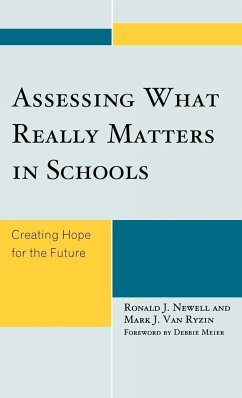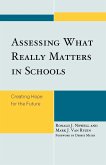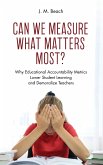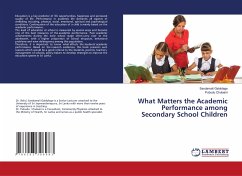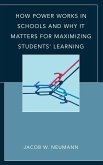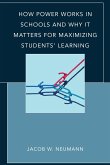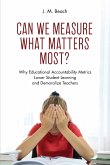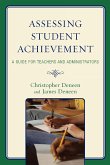Since the 1960s, efforts to reform education-including various curricular changes, reading approaches, teacher preparation, money for the disadvantaged, and different instructional approaches-have failed to bring about true systemic change because the reforms fail to deal with a different definition of learning. The Hope Study was created to discover whether a radically different learning environment would achieve different outcomes. In detailing the outcome of the Hope Study, Assessing What Really Matters in Schools gives hope to innovative and progressive schools, to new and different accountability systems, while changing the conversation from an achievement discourse to a human development discourse.
To achieve authentic academic success for more students, we need schools that are developed around adolescent needs and interests in belonging, being competent, and being responsibly free. Here is such a powerful, insightful perspective. -- Walter Enloe, profesor of human studies at the Hamline University School of Education in Minnesota This book offers a rare combination?a fresh perspective on student learning, a serious effort to measure success, and a practical way to inform discussions about schools as a learning environments. The authors conceptualize rigorous learning as the outcome of an environment that promotes positive youth development, not changes in course offerings or testing requirements. They champion the idea that students should be at the center of their own learning agenda and that overall success in life requires educating the whole child. This has led them to create and study schools that test an important idea ? that academic rigor comes from students establishing positive relationships with others and having opportunities to face personally relevant challenges.The Hope Study demonstrates what can happen when pioneering educators partner with researchers to go beyond their intuitive understandings to better understand what helps learners. The result is fascinating portrait of schools where students tackle real-world challenges in the context of supportive relationships with others. One comes away convinced that it is a mistake to ignore the social and emotional needs of students (and teachers), or to underestimate what young people can do when given appropriate -- Jason Ravitz, research director of the Buck Institute for Education in California This book offers a rare combination-a fresh perspective on student learning, a serious effort to measure success, and a practical way to inform discussions about schools as a learning environments. The authors conceptualize rigorous learning as the outcome of an environment that promotes positive youth development, not changes in course offerings or testing requirements. They champion the idea that students should be at the center of their own learning agenda and that overall success in life requires educating the whole child. This has led them to create and study schools that test an important idea - that academic rigor comes from students establishing positive relationships with others and having opportunities to face personally relevant challenges. The Hope Study demonstrates what can happen when pioneering educators partner with researchers to go beyond their intuitive understandings to better understand what helps learners. The result is fascinating portrait of schools where students tackle real-world challenges in the context of supportive relationships with others. One comes away convinced that it is a mistake to ignore the social and emotional needs of students (and teachers), or to underestimate what young people can do when given appropriate opportunities and support. One hopes that educators and educational researchers who are serious about students' overall well-being and long term needs will have a chance to consider the ideas in this book. -- Jason Ravitz, research director of the Buck Institute for Education in California

